Immutability #
Strings in Java are an example of immutability.
Something like
s = s + "abc";
Actually creates a new object with the 2 new strings, and the reference to s is updated, but actual strings are immutable.
Lists #
In Java a popular List class is LinkedList.

A change to either a or b will change both!
a.add(1, 5);
b.get(1);

Lets make an immutable List (pseudo): #
a = new List

b = a.cons(1)
cons stands for “construct new list from old.”
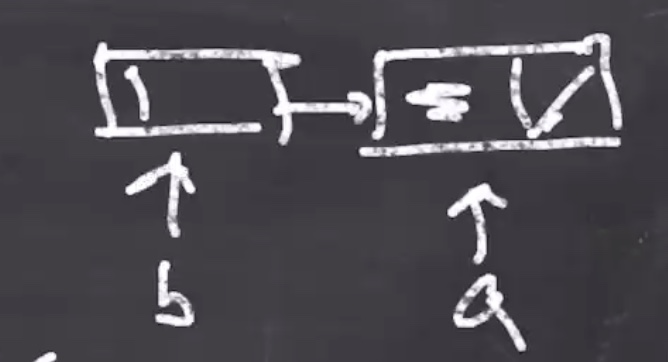
c = b.cons(2)
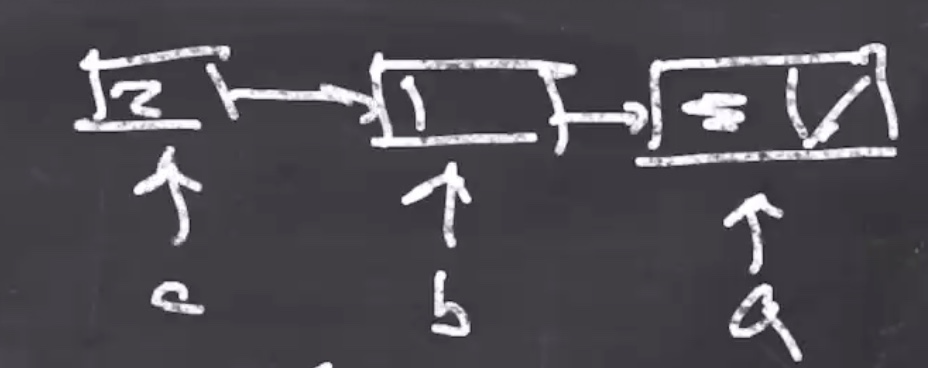
This “creates a new view” of the list, without disturbing any older views of the list.
d = b.cons(3)
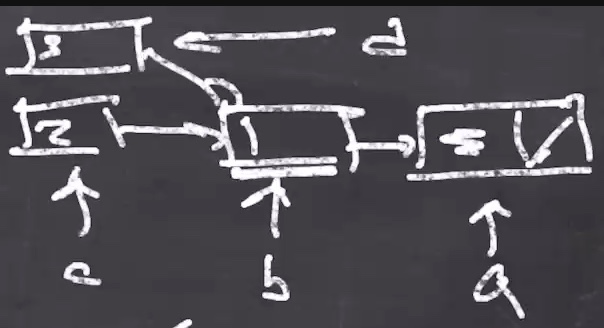
So a = [], b = [1], c = [2,1], d = [3,1].
e = d.rest()
rest gives back the list without the first element, so e = [1]
For efficiency and to keep views from changing, changes only happen at the front of the list.
Implementing it #
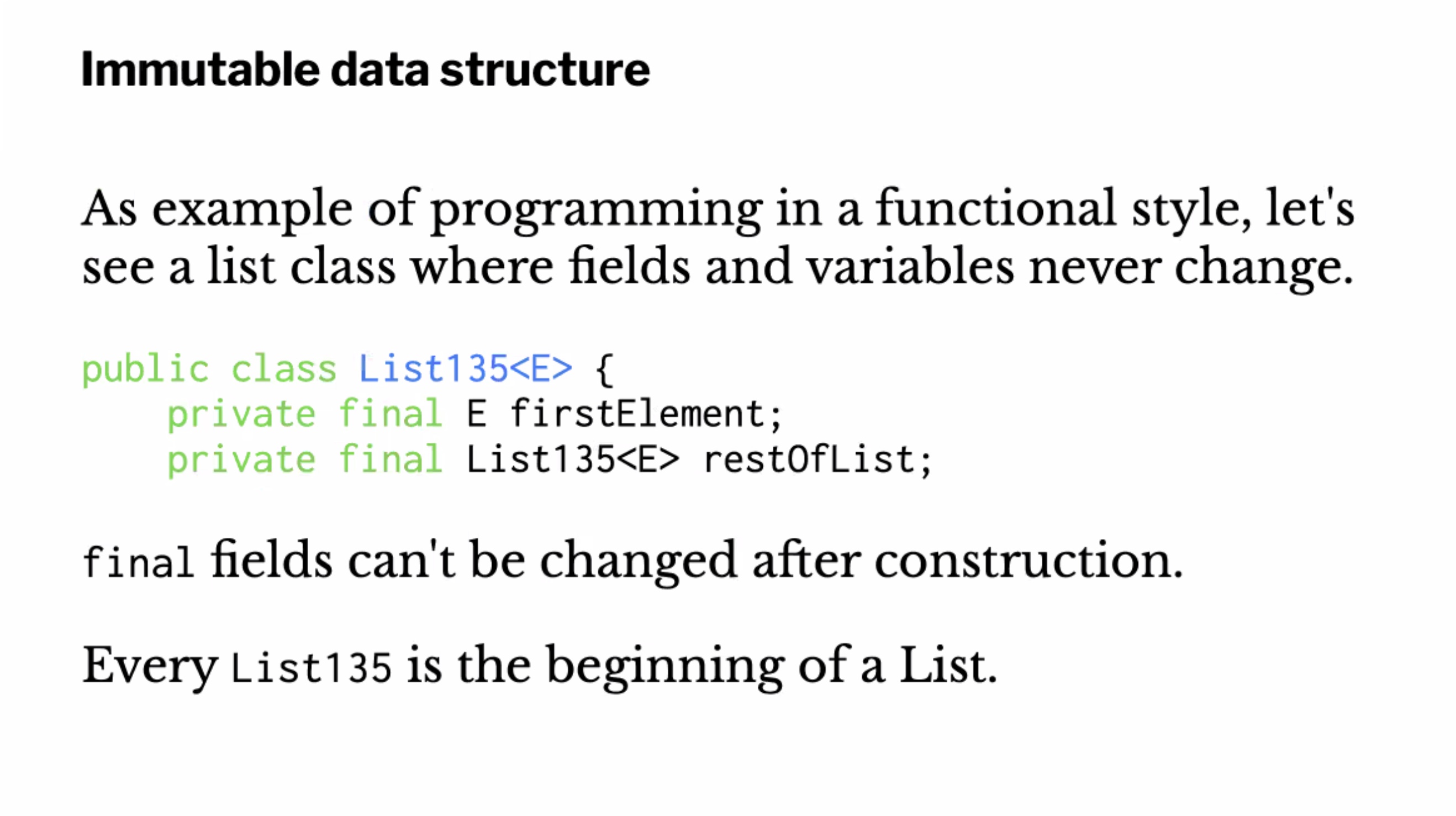
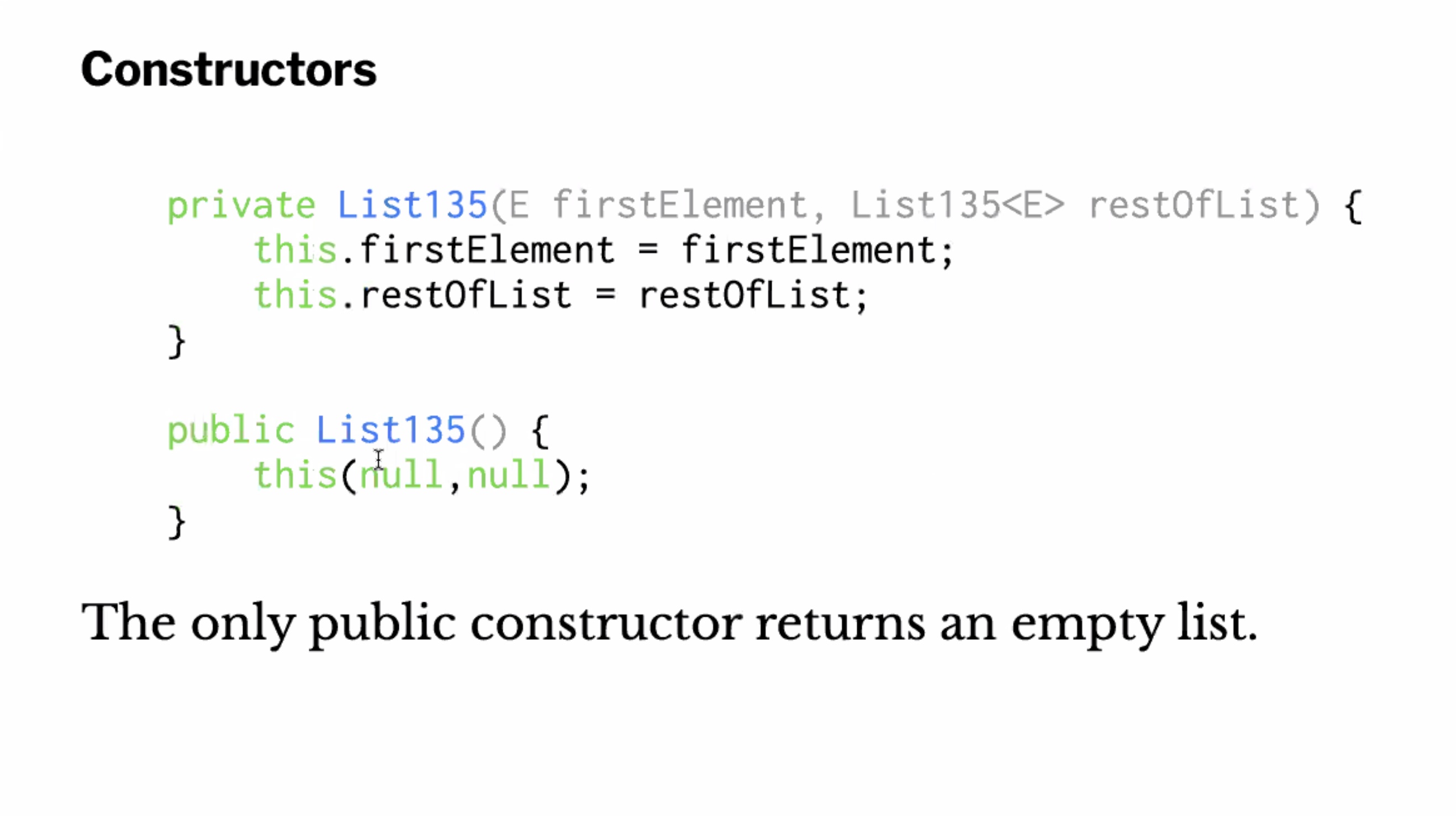
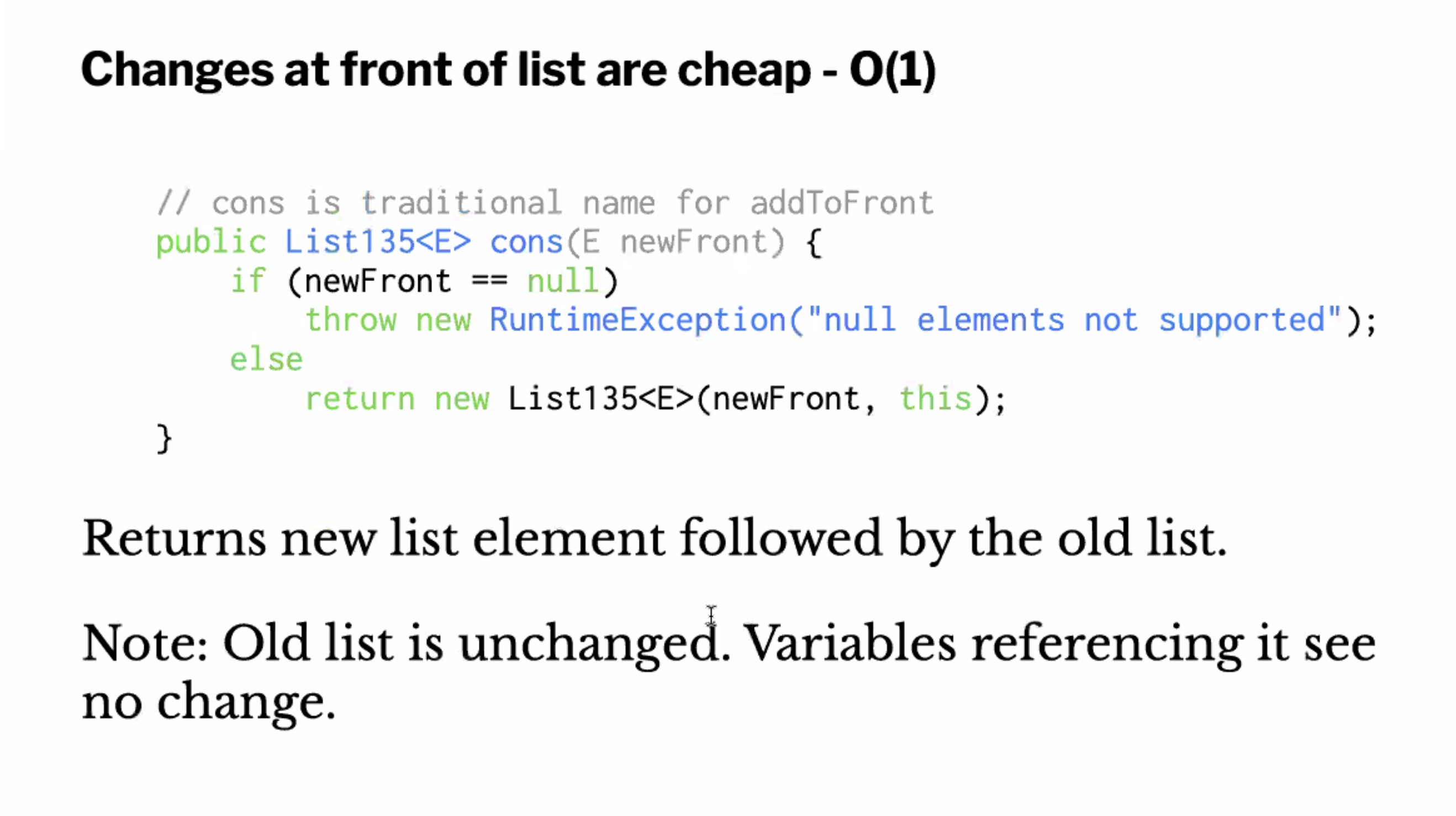
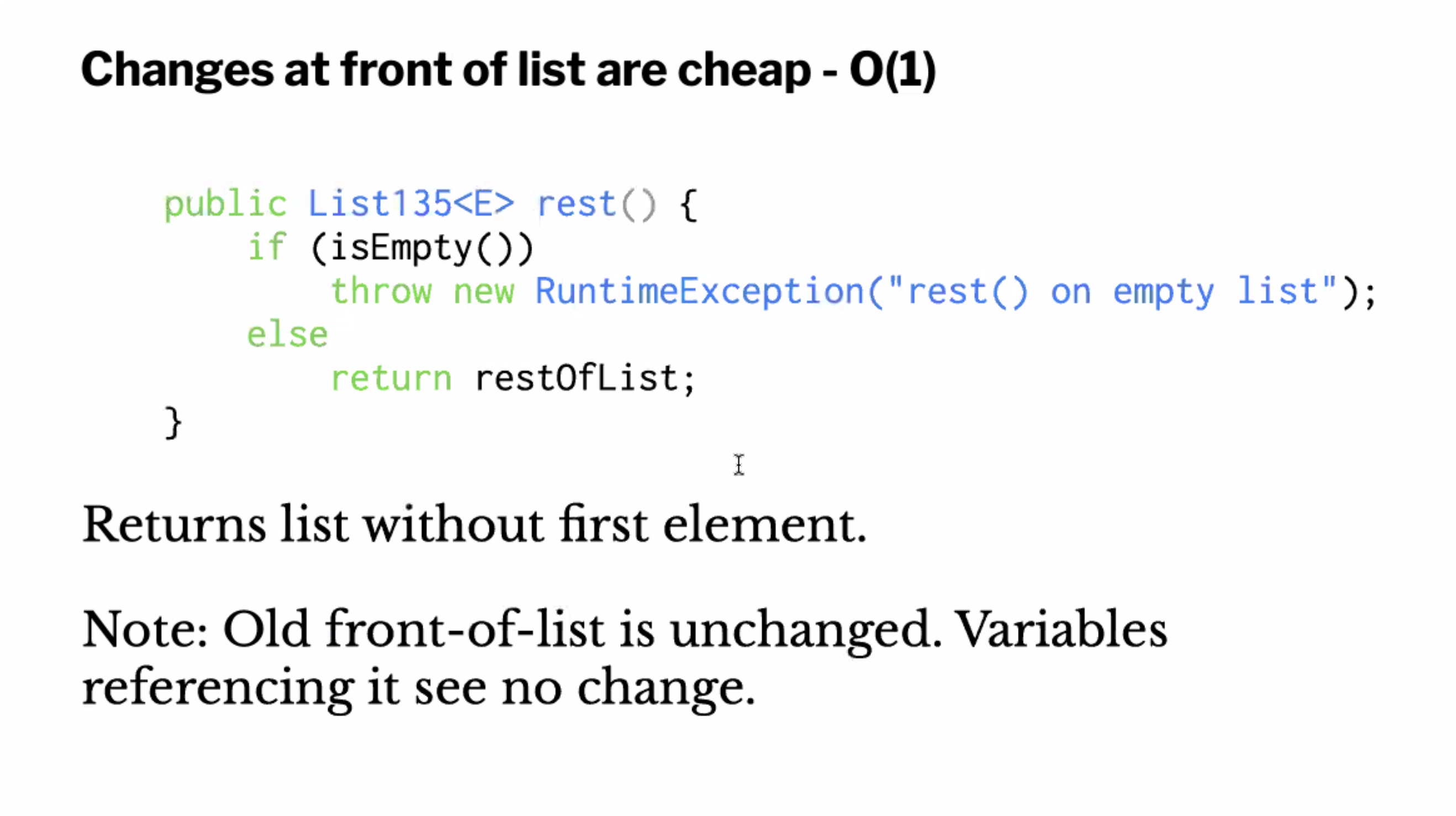
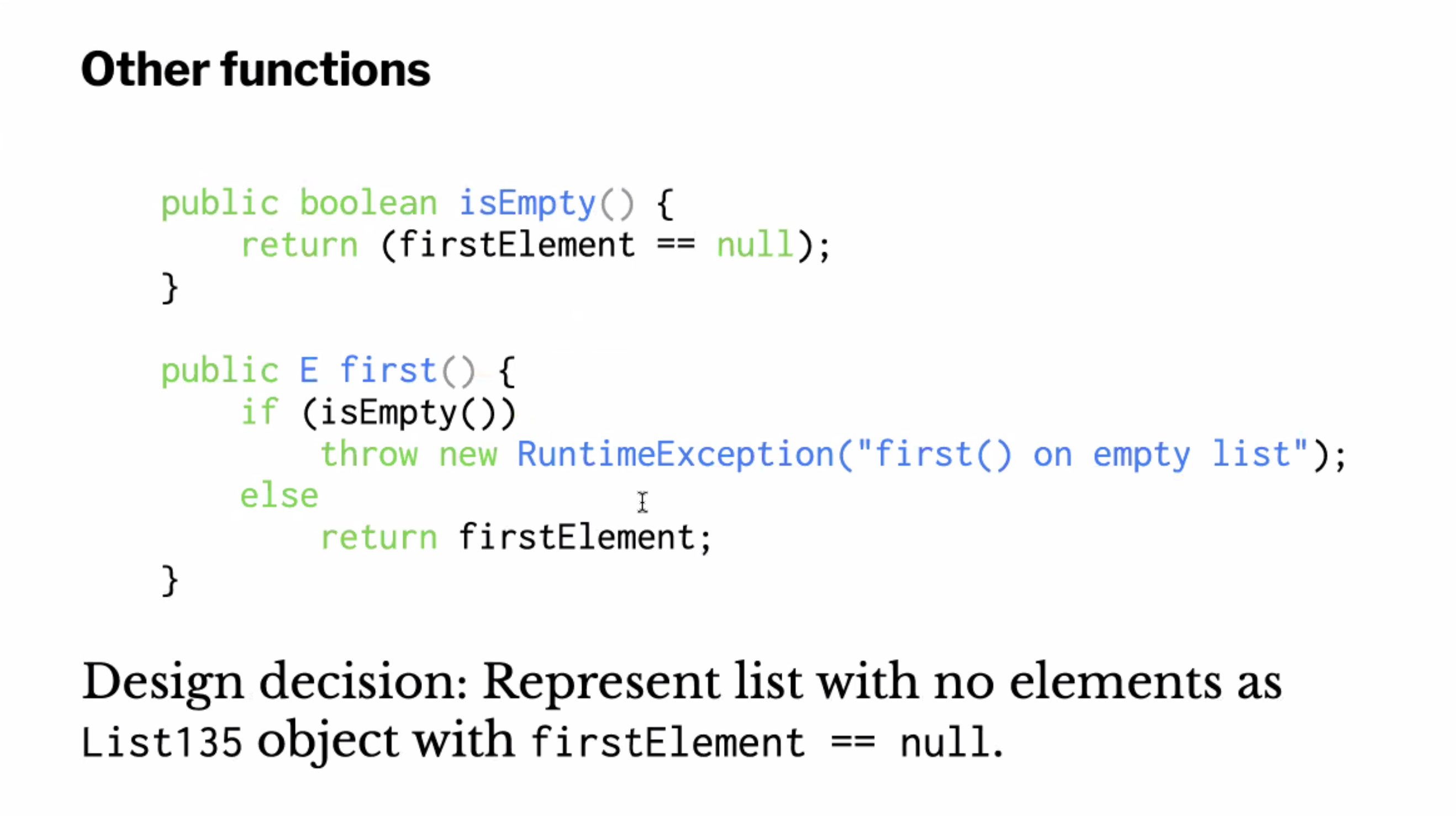
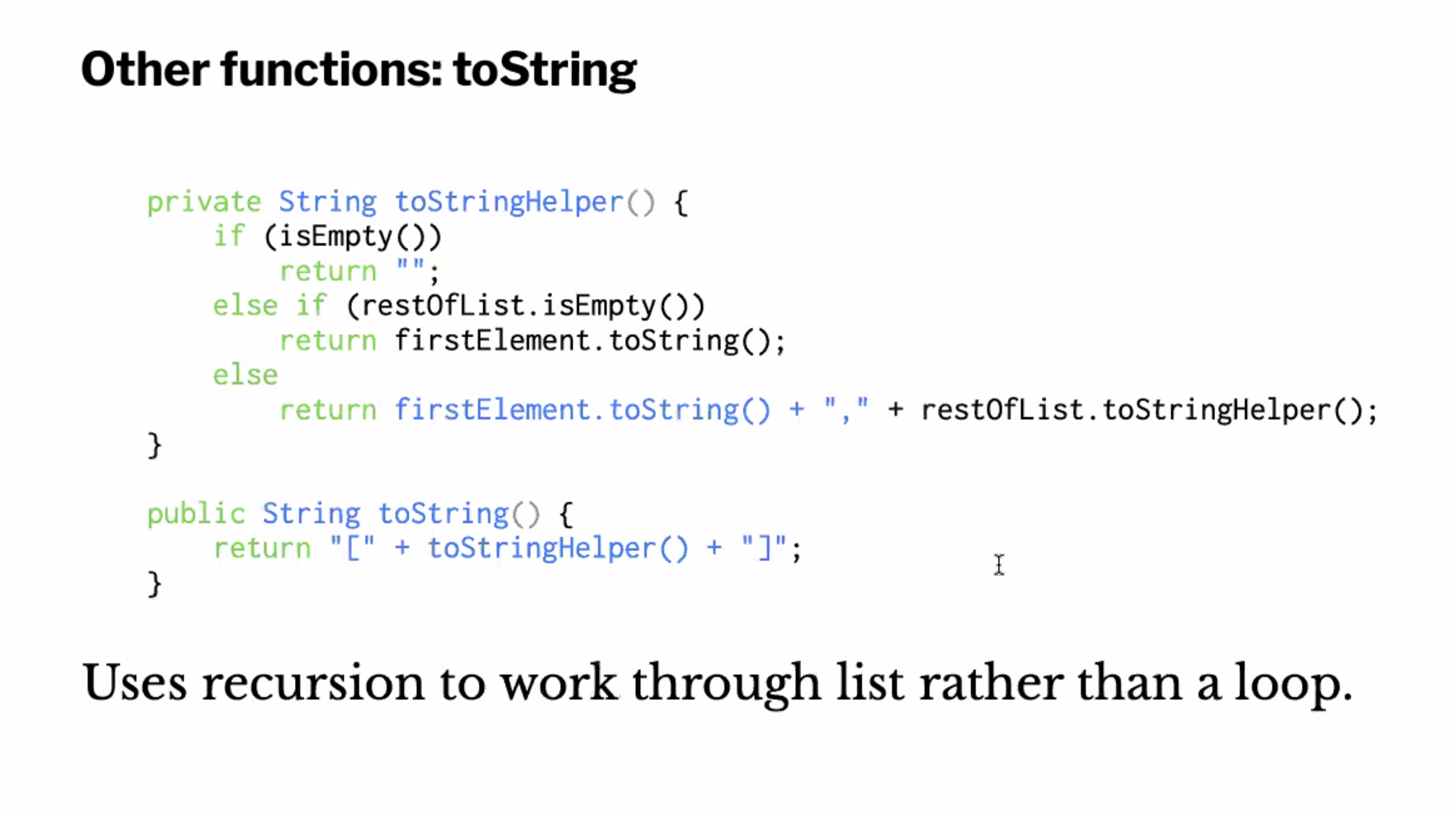
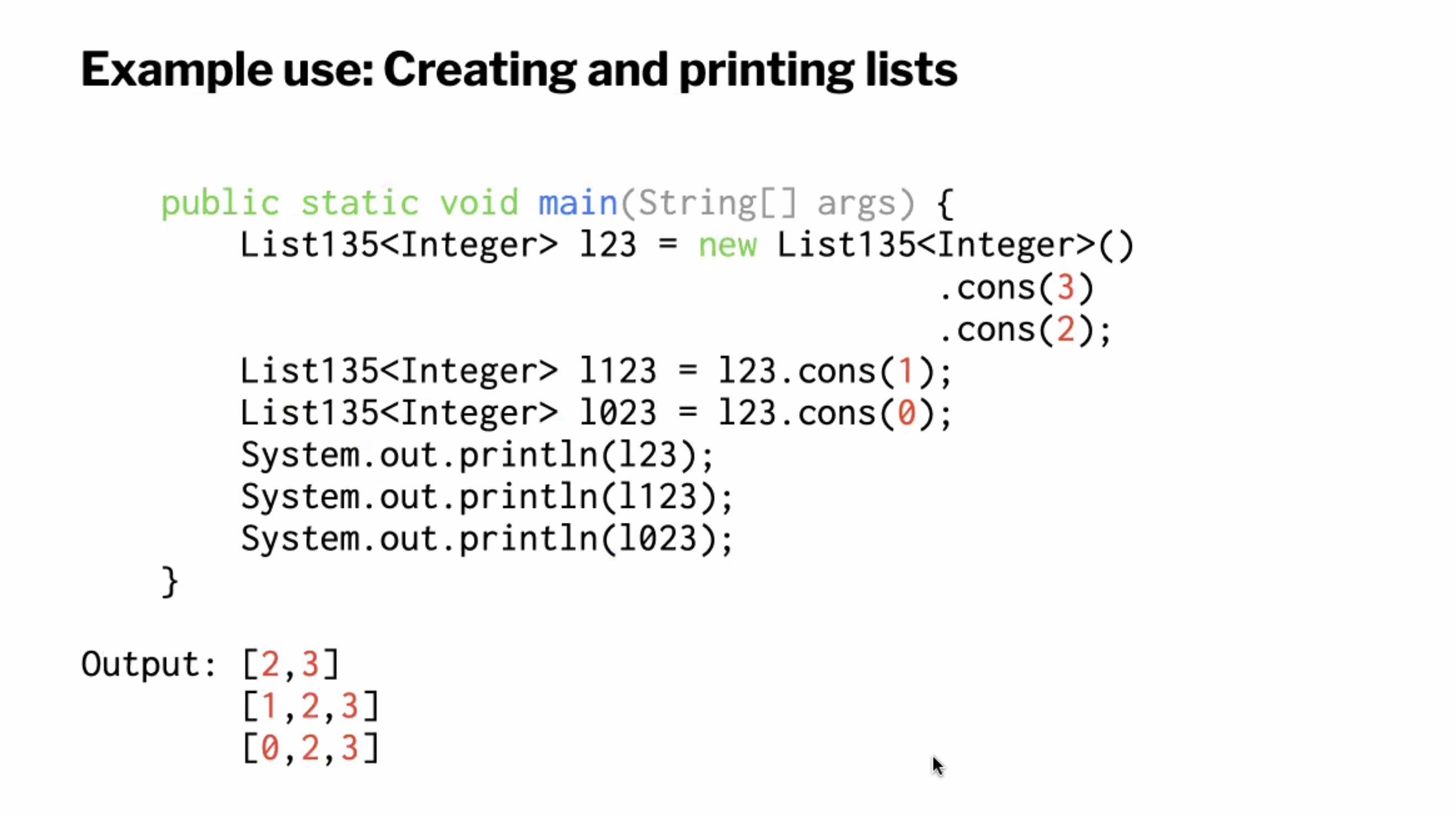
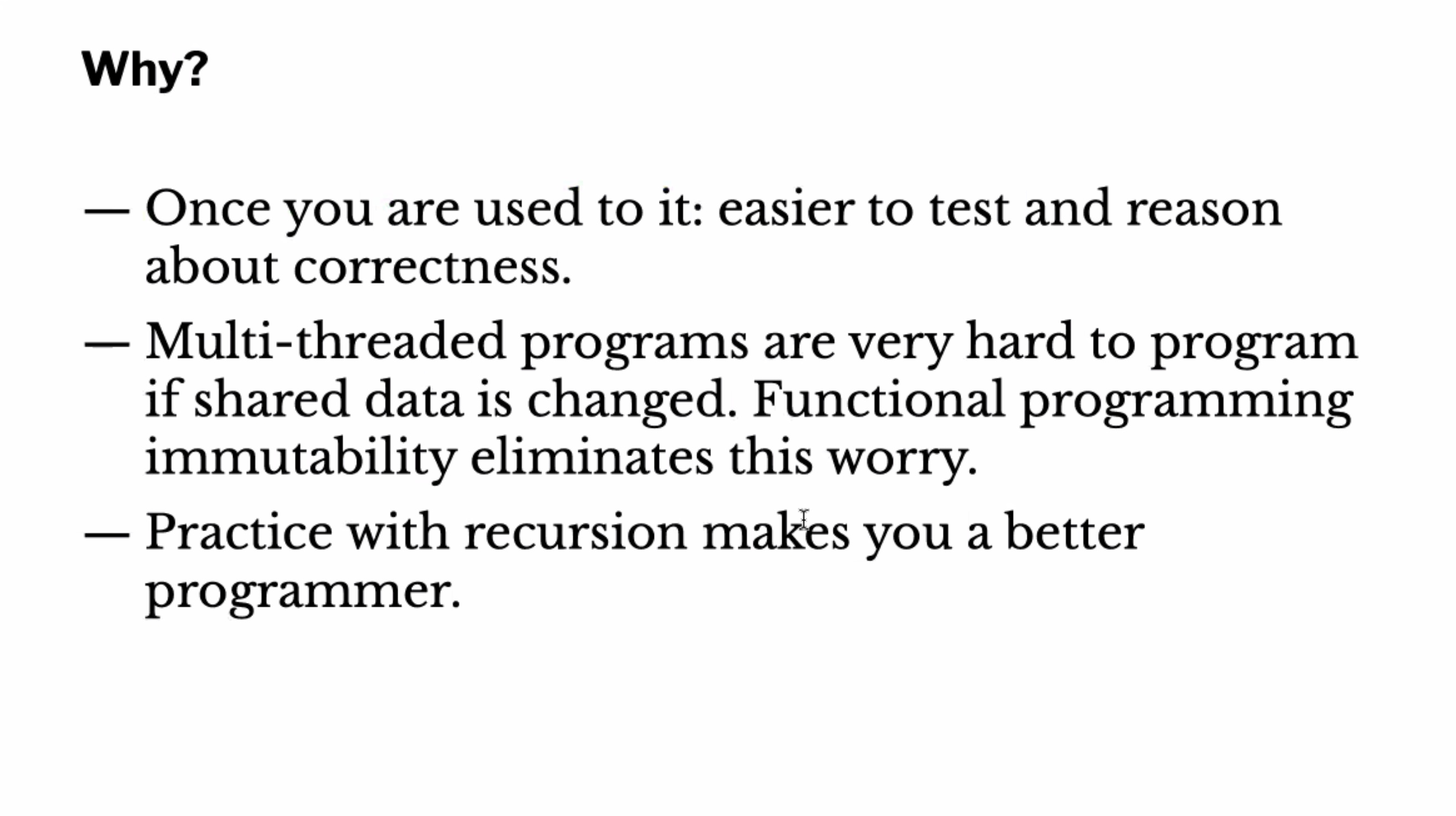
Racket #
https://docs.racket-lang.org/guide/to-scheme.html
Test using www.wescheme.org/openEditor
emptyis a constant for the empty listconsis the function that adds to the beginning of a list.(cons elem list)elemis element to be added,listis the list to be added to(rest nonemptylist)returns the list of everything but the first element(first nonemptylist)returns the first element of the list(empty? list)returns true or false (because the?“huh?”) if the list is empty(list 1 2 3)creates a list with elements123, can also be alised as'(1 2 3)
empty -- const for the empty list
(cons elem list)
(rest nonemptylist)
(first nonemptylist)
(empty? list)
(list 1 2 3)
'(1 2 3)
(empty? empty) ; true
(empty? (list 1 2 3)) ; false
(cons 3 empty) ; (list 3)
(cons 2 (cons 3 empty) ; (list 2 3)
(cons 1 (cons 2 (cons 3 empty))) ; (list 1 2 3)
'(1 2 3) ; (list 1 2 3)
(first '(1 2 3)) ; 1
(rest '(1 2 3)) ; (list 2 3)
The if construct in Racket:
(if boolexpr
trueexpr
falseexpr)
An example to return the length of a list: #
Some pseudo for recursive functions:
if (very small)
solve directly
else
make recursive call (use smaller-solver)
For our problem:
if (empty list)
return 0
else
return 1 + listlen(list without front)
In racket:
(define (listlen xs)
(if (empty? xs)
0
(+ 1 (listlen (rest xs)))))
Note
- Traditional in Racket to pass the list name as plural:
xs - There are no returns in Racket, everything is an expression
We can then run this function via the interactions panel
(listlen empty) ; 0
(listlen '(1)) ; 1
(listlen '(1 1)) ; 2